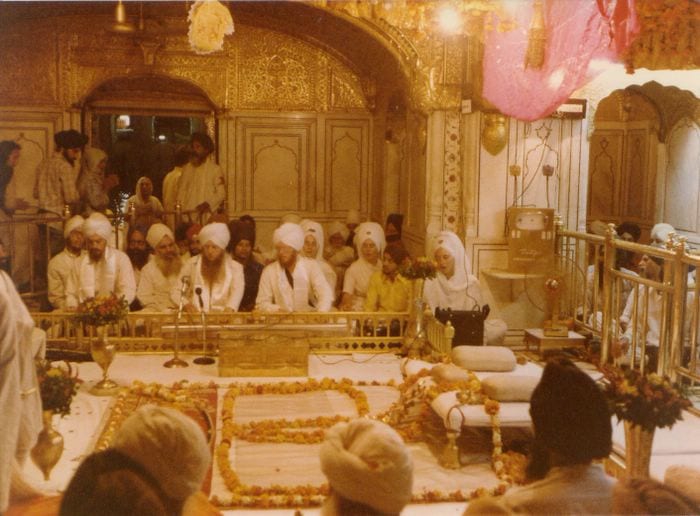ਬਿਦਰੁ (bidar)
Meaning: noun: Bidar or Vidur, a devotee born to a slave-girl, a female servant; one of the central characters in the Mahabharat, a major Hindu epic.
Quote:
ਬਿਦਰੁ ਦਾਸੀ ਸੁਤੁ ਭਇਓ ਪੁਨੀਤਾ ਸਗਲੇ ਕੁਲ ਉਜਾਰੇ॥
bidar daasee sut bhaio puneetaa sagle kul ujaare.
Bidar, the son of a slave-girl, was purified, and all his generations were redeemed. – Guru Arjan Sahib, Guru Granth Sahib, 999
Message: As mentioned in the epic Mahabarat, Bidar was the prime minister of Hastinapur (present day Delhi) and also the uncle of Pandavas and Kauravas. He was born to a female servant and thus not given the right to the Kingdom.
Bidar and his wife were asked to leave the palace when his brother, Dhritarashtra, the father of Duryodhan, became the King of Hastinapur. They left with nothing, lived in a small shabby hut and began to meditate upon the Divine.
One day when Krishna visited Hastinapur, he chose to stay in the small hut with Bidar instead of being courted by the Prince Duryodhan. Duryodhan protested against this.
In reply, Krishna pointed out that Duryodhan was very egoistic because of his riches. He had forgotten who the Giver of it all is. Bidar, though poor, had purity in his heart and spoke only of the Divine. He was neither egoistic nor boastful. After a simple dinner, the night was spent singing praises of the Divine. The affection from the poor man and ordinary food offered with love was pleasing to Krishna.
The Divine only needs love and devotion. Human remains egoistic and heavily influenced by material possessions today as kings had been then. We are still failing to realize who the Giver is and how we are meant to reach out to Him. Our Gurus keep reminding us of the need for humility and devotion. Instead of remembering the Divine and emulating virtues, we are focused on the flaws and weaknesses of others.
ਬਿਦਰੁ ਉਧਾਰਿਓ ਦਾਸਤ ਭਾਇ॥ ਰੇ ਮਨ ਤੂ ਭੀ ਹਰਿ ਧਿਆਇ॥
Bidar was liberated by his attitude of humility. O my mind! You too contemplate on the Divine (and you will be liberated as well). – Guru Arjan Sahib, Guru Granth Sahib, 1192




